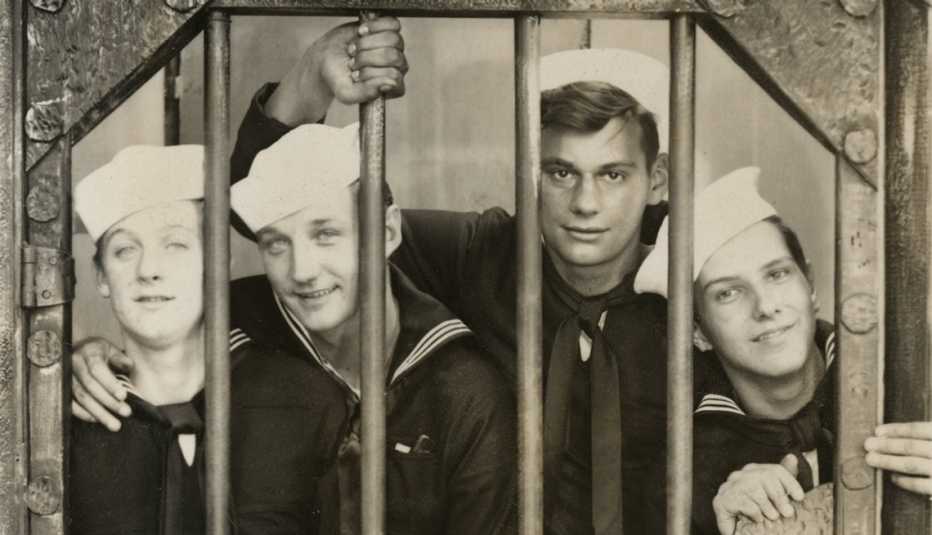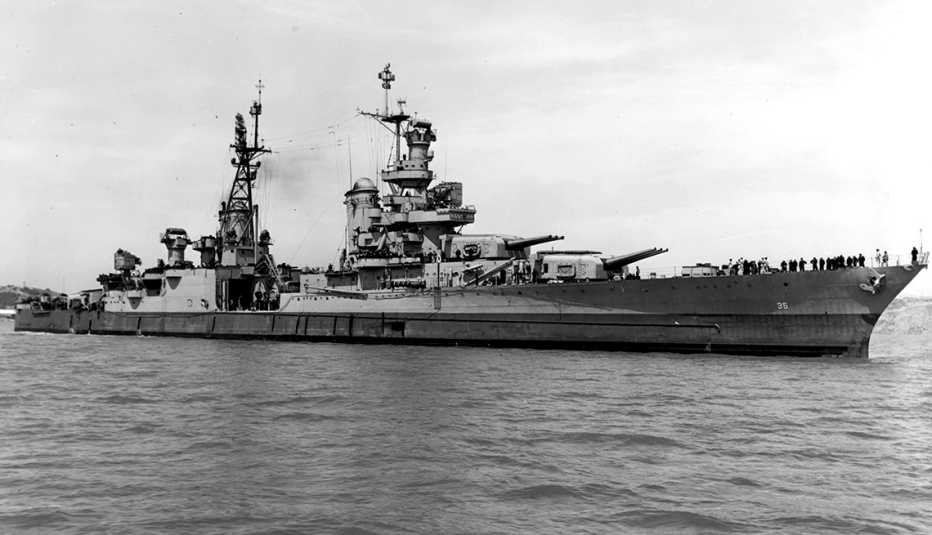Staying Fit


World War II, 1946
Seaman Robert Terry
by Seaman Richard Thelen
Richard Thelen was a sailor with his friend Robert Terry on the USS Indianapolis when it was torpedoed in the Philippine Sea by a Japanese submarine and sank. Of 1,196 crewmen, about 300 died immediately. Of the almost 900 who survived the sinking, nearly 600 died over the next four days, from dehydration, drowning and shark attacks; rescue operations were mounted too late to save most of the men.
Bob Terry was next to me at our first roll call in Navy boot camp in 1945 — he was T-E, for Terry; I was T-H. He was 18, too, and we both came from the Midwest. Then we got assigned to the Indianapolis together.


AARP Membership— $12 for your first year when you sign up for Automatic Renewal
Get instant access to members-only products and hundreds of discounts, a free second membership, and a subscription to AARP the Magazine.
We played cards and ate and went drinking together — we became real close friends. And we promised each other that if one of us didn’t make it, the other would go and talk to the family.
When the first torpedo hit after midnight, I was sleeping topside — it was too hot below deck. The explosion threw me into the air. Luckily, I was flung onto a cable, or I would have been thrown into the water without a life jacket. The ship was listing heavily, and the quarterdeck was on fire. There was a lot of shouting, and explosions. Then the ship just slid away beneath us. It was dark and suddenly quiet, though you could hear men shouting as we all looked for rafts or lifeboats.
I was floating around in a kapok life jacket for the next four days — no food, no water, a hundred degrees out. There weren’t enough rafts. Then on the second day, Terry saw me. I don’t know how he recognized me — like a lot of guys, I was all covered in black diesel fuel, with my hair all matted down.


I was glad to see him. We tried to hook our vests together so we wouldn’t float away, but it didn’t work because the swells just ripped the vests apart. So we tried to keep floating near one another, Terry and me and two other guys. They were long days: You pass out, then come to, then pass out again. We were slowly dying. Waking up less, the sun beating down — still no food or water. I felt sharks bump against me, and once or twice I was looking right at one, maybe 16 inches away. But the diesel fuel masked me — I don’t think they cared for the smell.
On the fourth day, we spotted a raft — planes had dropped a few — and we decided to try to swim to it. Two of the guys died from the effort — in our condition, their hearts gave out, I think. Then Terry started to swim toward it. And while I watched, I saw a shark take him, just 20 or 30 feet away. I was three-quarters out of my head, so close to death — my mind was coming and going. But I thought, it’s over.
Later, I somehow made it to that raft, and there were four guys in it. I was too weak to pull myself in, so I tied myself to it. That night we were rescued, a little after midnight. They said that nearly all of the survivors were the ones who were in vests and stayed mostly submerged.
Six months after I got out of the hospital, I went to see Terry’s mother and told her our story.
I’m a lucky guy, but I think about Terry all the time, even 73 years later.
Thelen, 91, became a long-haul trucker after the war. A Lansing, Michigan, resident, he is a proud father of six and grandfather of seventeen.

































































More on Home and Family
The Buddy I’ll Never Forget
We honor the men and women who served, those who still serve today, and the friendships they forged in war